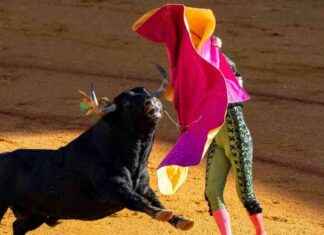MADRID, 4 Nov. (EUROPA PRESS) –
The judge of the National Court that is investigating the so-called ‘Operation Titella’ has rejected the request of the television producer José Luis Moreno to carry out a confrontation with the banks affected by the alleged plot, considering that he lacks “suitability and usefulness” for the cause.
In an order, signed yesterday Thursday and to which Europa Press has had access, the judge has explained that the holding of the confrontation between the representatives of the banking entities that appear as injured in the procedure is not relevant for the investigation of the possible commission of crimes of illicit association, fraud, document falsification and money laundering, among others, by Moreno and the rest of those investigated.
The head of the Central Court of Instruction Number 2, Ismael Moreno, has recalled that he is not obliged to carry out all the proceedings requested by the parties. And he has stressed that, in his opinion, the confrontation requested by Moreno is not essential to the procedure.
Thus, the magistrate has stressed that since he began to investigate ‘Operation Titella’, “investigative procedures of various kinds have been carried out to clarify the facts under investigation and elucidate the alleged responsibilities that could arise from this instruction “.
The judge has assured that Moreno has not indicated “the specific reasons” for which he considers it necessary to carry out the confrontation or how said diligence could help to “clarify the facts.” Therefore, and following the criteria of the Prosecutor’s Office, he has rejected the request.
The investigations around Titella began in 2018 and the operation hatched last June with the arrest of the ventriloquist and that of dozens of people in different cities for an alleged fraud perpetrated through a corporate network.
The investigators divide the alleged plot into two organizations: one led by Moreno, Antonio Aguilera and Antonio Salazar, dedicated since 2017 to “fraud and fraud against banking entities and private investors”, “to the falsification of bank effects such as checks and promissory notes” and to “money laundering”; and another, headed by Carlos Brambilla, an alleged drug trafficker who would have used said structure to launder money.
According to the judicial report, Moreno and Aguilera would be the “maximum responsible” and Salazar, the third in action. Each one would have a function. The producer, “as a well-known public figure, would lend his name as a business card” in order to easily get the financing they would pretend to need to launch a film project. Therefore, he “was the main recipient of the funds obtained”.
That money would then pass into the hands of Aguilera and Salazar. The two would have “extensive knowledge in banking and commercial operations”, so they would take care of creating the companies, “make them up”, appoint administrators and present them to the banking entities as the recipients of the necessary financing for said projects. In reality, they would have no activity at all.
Through this network of “shell companies” managed by presumed figureheads, both organizations would move “large amounts of cash” which they tried to dispose of with income that they passed off as benefits from their commercial work or with cash injections for which they would have the complicity of bank employees who would take their commission in exchange for introducing this money into the legal circuit.
Television producer José Luis Moreno has repeatedly denied any illegality in relation to the alleged macro-fraud being investigated in ‘Operation Titella’, assuring that he is not a “capo” of anything, but rather a businessman with a long career.






